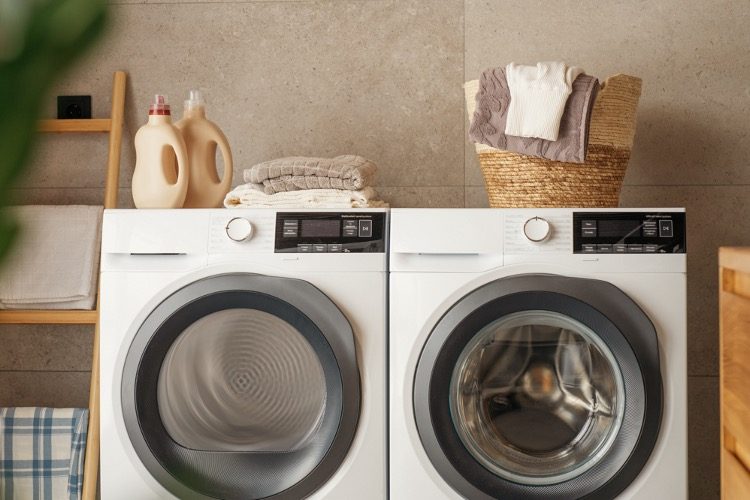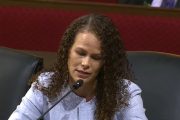
The Biden administration’s war on household appliances took a hit Monday when an appeals court ruled that its 2022 water-usage standards for dishwashers and clothes washers were “arbitrary and capricious” and would probably have the opposite of their intended effects.
The Fifth U.S. Circuit Court of Appeals found:
The 2022 DOE [Department of Energy] was required to reasonably consider the relevant issues and reasonably explain its decisions…. It failed to do so. Specifically, it (a) is unclear that DOE has statutory authority to regulate water use in dishwashers and clothes washers. But even if DOE has water-usage authority over the relevant appliances, the department (b) failed to adequately consider the negative consequences of [its new rule], including the substitution effects of energy-and-water-wasting rewashing, prewashing, and handwashing. And in all events, the 2022 DOE (c) failed to adequately consider the impact of the energy conservation program on “performance characteristics.”
In 2020, the Trump DOE issued a rule creating a new class of dishwashers whose normal cycle lasted less than an hour. This was done to address concerns that “burdensome regulations made dishwashers incapable of, well, washing dishes,” at least at a rate that suits consumers’ needs, wrote Judge Andrew Oldham. The DOE issued a similar rule for washing machines.
Upon taking office, however, President Joe Biden ordered federal agencies to reconsider all regulations issued during the Trump administration in an effort to “tackle the climate crisis,” with the 2020 DOE rules mentioned specifically. In January 2022, the DOE promulgated its own rule revoking the 2020 rules; the court referred to this as the “Repeal Rule.”
A group of Republican-led states took the DOE to court. The states were acting not only on their citizens’ behalf but also on their own behalf since they, too, own and operate residential appliances and would like to have faster, more effective ones.
The DOE argued that the states did not have standing to challenge the Repeal Rule despite the fact that courts have ruled that “market participants are …. Injured when their choices are constrained by regulation,” noted Oldham. The department tried to claim that since the Repeal Rule was issued before manufacturers had had a chance to produce appliances under the 2020 rules, neither the states nor anyone else could prove that they would have bought such appliances and, therefore, that they had standing to challenge the 2022 rule.
“Heads the government wins; tails petitioners lose,” Oldham summarized the DOE’s argument before dismissing it.
As to the Repeal Rule itself, the biggest problem — besides the blatant unconstitutionality of federal appliance regulations, which the court did not address — is that the DOE appears to have absolutely no authority to issue it. “In promulgating the Repeal Rule,” penned Oldham, “DOE stated that its energy conservation program must promote ‘water conservation’ and regulate ‘water use.”’ Unfortunately for DOE, the statute under which it issued the rule, the Energy Policy and Conservation Act of 1975 (EPCA), only grants it the authority to regulate water use for a handful of plumbing components such as shower heads and faucets, not dishwashers or washing machines. Thus, “it is unclear how or why DOE thinks it has any statutory authority to regulate ‘water use’ in dishwashers and washing machines.”
Moreover, observed Oldham:
Even if DOE could consider dishwashers’ and clothes washers’ “efficiency” in both “energy use” and “water use,” the 2020 rules likely promoted greater efficiency in both categories than the Repeal Rule. Assuming both energy conservation metrics are on the table, the states argue, and DOE does not appear to dispute, that one important aspect of that problem is whether appliance regulations actually reduce energy and water consumption. Yet the administrative record contains ample evidence that DOE’s efficiency standards likely do the opposite: They make Americans use more energy and more water for the simple reason that purportedly “energy efficient” appliances do not work…. So Americans who want clean dishes or clothes may use more energy and more water to preclean, reclean, or handwash their stuff before, after, or in lieu of using DOE-regulated appliances. [Emphasis in original.]
In fact, the 2020 DOE recognized that the regulation-induced increase in dishwasher-cycle times over the years — from one hour to two-and-a-half hours — has caused many consumers to resort to hand-washing their dishes instead. “And,” Oldham pointed out, “nothing wastes water and energy like handwashing: DOE itself estimated in 2011 that handwashing consumes 350% more water and 140% more energy than machine washing.” (Emphasis in original.)
But two years later, the “DOE recognized the facts that undermined its Repeal Rule, cited other facts to suggest the Repeal Rule would conserve water and energy … and then implicitly credited the latter without explaining why,” wrote Oldham. “That is the touchstone of arbitrary and capricious agency action.”
The Biden DOE contended that the Repeal Rule was justified because, in its opinion, the 2020 rules were illegal. However, according to Oldham, the Supreme Court has ruled that “even when an agency determines that its previous decision was illegal, it still must go on to consider alternatives to simply revoking the prior action.” The DOE did no such thing; it merely rescinded the allegedly illegal rules, which “renders that policy arbitrary and capricious.”
Having thoroughly eviscerated the DOE’s arguments — one of which it said “borders on frivolous” — the court ordered the department to undertake “further proceedings consistent with this opinion.” Sadly, shuttering the unconstitutional DOE was not included.


